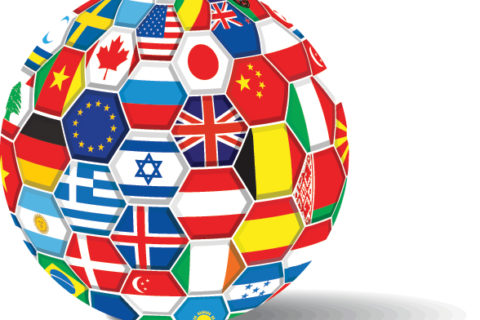Jo Bowman
Leaders in the largest global research companies on adapting to unpredictability.
Kantar CEO Eric Salama says prospects for the coming year are tough to call. “You’ve got some US uncertainty as to how dramatically they will try and cut back on the deficit and what will happen to tax cuts and those types of things. You’ve got a situation in Europe that we’re all aware of, and in that kind of environment, clients tend to be very cautious in their spending and that obviously has a knock-on effect on the industry.”
Kantar Worldpanel has identified significant differences in the way consumers are responding to uncertainty – some are shopping more frequently, others trading down or switching to private label. At the other end of the price scale, the likes of Burberry and Hermes have continued to thrive. “I think, clearly, people are more price conscious but also more deal conscious, whatever their income. Getting a good deal is seen as something that makes you look smart … and I’d expect that to continue. People continue to spend money on strong brands and in categories that are important to them. Some of the issues that clients face are as much about making the category they’re in relevant to the consumers as it is about their individual brands.”
For researchers, Salama says, serving clients in uncertain times means, in some ways, doing the same as always, but better; in other ways, it means adopting a different and, at times, challenging approach. “So many of the things we’ve talked about are about nuances and quite subtle things, and the quality of the insights is incredibly important – really digging deep into those insights to understand what makes consumers tick is so important. I’d say qualitative capability and a much better link between qualitative and quantitative is essential.”
Clients are also looking for a clearer understanding of stimulus and response, and how best to elicit the behaviour they’re seeking, depending on where they’re interacting with consumers. Researchers are now working with more information on consumer behaviour than ever before, and can start to paint a much more colourful picture of what people do, why they do it, and their emotional responses to things than that obtained via survey research alone. Research agencies must realise, however, that the way they deliver to clients must change, with results delivered faster – ideally in real time – and with parts of the process automated to save time and reduce costs.
And in challenging times, the role of talented staff becomes more important than ever. “Whether it’s innovation or best quality insights or any aspect of the business, at the heart of it is whether you’ve got great people who can imagine things, think them through and execute them,” Salama says. “When you’re going through a period of change, as this industry is, the quality of the talent is the single biggest driver of whether you’re successful or not.”
Matthias Hartmann, CEO of GfK, says markets and consumer habits are still being buffeted by the severe economic conditions. “In our recent GfK Consumer Climate study, we looked at how consumers are reacting to the current climate around the world,” he says. “Overall, consumer spending and investments are maintaining their upward momentum.” In GfK’s home market, Germany, consumers have been saving rather than spending in recent years, but there are signs that’s changing, with consumption back on the way up. It’s this kind of macroeconomic insight that clients can profit from, Hartmann says.
“These turbulent times present a challenge to companies doing business globally. Companies need to be flexible enough to react and respond quickly in a constantly shifting marketplace. GfK offers the kinds of insights that help companies not only to better understand customers, but also to provide insights into the reasons behind the changes in consumer behaviours. A key question we seek to answer is how external influences breed new needs.”
GfK recently launched a new trend and forecasting service that enables clients to predict how consumers will respond to new product innovations. Its Retail Analytics tool, meanwhile, allows the company to look at retail sales data in different ways, doing analysis by brand, product, or special features. These analyses aggregate information from thousands of stores around the world, which analysts and modellers use to pull out knowledge that can forecast and predict market trends.
Hartmann says that the recession led to a restructuring of GfK that took account of the way different regions were affected, and that enabled maximum flexibility as all markets looked towards recovery. The company shifted business responsibility to the regions, rather than having more than 100 countries directly accountable to the central management board. “This provides us with the flexibility to better respond to our client and their shifting needs for market expansion, globally, regionally and locally.” Clients need to be more flexible, too. “We help them quickly adapt and respond to situations affecting their industry and customers. For example, our ability to provide clients in the travel industry with very timely information – including analysis of weekly booking data on a market-by-market basis – enables them to better assess their situation and act on that information. The more uncertain the general situation, the greater the demand for sound, up-to-date information and insights.”
David Parma, president, Nielsen BASES and president, Global Consumer Research, says consumers are playing it safe, especially in Europe and the US, where fears about unemployment create a reluctance to spend. But, according to Nielsen’s Global Consumer Confidence Index, householders in less troubled regions are also adjusting to the mood of uncertainty. Globally, 62% of consumers believed they were in recession in Q3 of 2012 (up from 57% in Q2), and half of those believed the recession would live on for another year.
Habits are therefore shifting: seven in 10 said they were trying to reduce household expenditure, and half said they spent less on new clothes and out-of-home entertainment; 14% of people questioned said they had no spare cash for discretionary spending. What’s curious is that in Asia-Pacific, 72% of consumers were changing their spending habits to reduce outgoings, more than in the previous quarter, while in North America, the region with the greatest proportion of people saying they had no spare cash, 68% of consumers were trying to reduce spending, a smaller figure than the previous quarter.
“The ability to foresee and maximise innovation success is a fundamental lever in times of uncertainty,” Parma says. “Companies place a lot of effort (and money) on developing innovations that in fact aren’t economically successful. There’s a tremendous need for research companies to help their clients succeed with innovation and produce positive ROIs. Many companies talk about wanting to innovate within their core category, extend into adjacencies, and even develop new business models. The problem is that the organisation doesn’t know which is a higher priority, which one they should be solving first. The result is typically the starting of many disparate initiatives, but most of them don’t have enough focused support to succeed. At Nielsen, we have done a lot of work to understand what drives and maximises innovation success, and how to qualify those elements prior to incurring major innovation investments.”
Some of the lessons from previous times of economic crisis appear counterintuitive, Parma says. When it comes to advertising effectiveness, for instance, ads focused on price and savings tend not to resonate with consumers, even in tough times, but humour and sentimentality do strike a chord. Another unexpected find has been on price sensitivity. Nielsen studies in 2008 and 2009 found that, while consumers were sensitive to price changes on products with short life cycles, including drinks, comfort foods and shelf-stable goods, they were less sensitive to price changes during the recession when there’s a long purchase cycle, a high unit price, or if the product was chilled or frozen. The study was conducted in the US, but the same rules have been found to hold true for other developed markets. “Don’t be afraid to take a price increase in tough economic times,” says Parma.
Nielsen describes itself as a global information and measurement company, not a market research company.
Ipsos founder and CEO Didier Truchot notes that, while much of the developed world is flat-lining economically, developing markets such as China are still seeing double-digit growth. This disparity means global brands must now operate in a complex ecosystem. Diversity rules, yet a couple of recession-induced changes in behaviour are fairly consistent across markets. “Consumers are now more educated than they were, which means they’re more selective, their loyalty to brands is different, they’re looking at ways to save money, but currently they’re spending more in acquiring mobile services and things like that,” he says. “Any brand or product needs to think very seriously about how to engage better with consumers, because success in the past doesn’t necessarily mean they’re equipped for success in future years. There’s a lot of swinging behaviour from the consumer side, and that makes it a pretty stressful time for many companies.”
The mission of researchers remains pretty simple, Truchot says, but executing that mission has become more complex. “We need to deliver to our clients accurate information and be sure that we’re relevant to their business goals and that we’re doing that in a way which is clearly and quickly understandable. We’re usually either helping clients develop their business or helping them control or measure their spending – making sure they’re spending in the right place, using the right media, driving consumer behaviour in the way they want. In the current times, what’s become so important is that we deliver that information quickly and make it simple – get to the point in a way that clients can immediately see what this means to their day-to-day business. It’s easier to say than to do, but simplicity is something we should really strive for.”
Truchot says he’s recently rediscovered the manifesto written when Ipsos was formed in 1975, and finds it just as relevant to today’s challenges as it was then. “Researchers are technicians, and it’s important for us to use techniques well … but the cultural shift which we wanted to bring about more than 30 years ago is still something we need to keep in mind – it’s focusing on exactly what the client needs, and how we communicate with them.”
Previous periods of economic hardship have taught researchers to be more client focused and to emphasise the value of investing in new ideas, Truchot notes. Still, he adds, “I think that many companies are feeling the pressure of delivering profits, and, in times that are difficult to understand and predict, many of them are prioritising their level of profitability against some of their growth goals. We see many S&P 500 companies in the US achieving their profit goals but not necessarily their top-line goals. They’re not willing to take too many risks, partly because there are questions about how they finance new developments and should they keep their cash or pile more cash than ever into new business initiatives? There’s not one rule which can cover the whole world and all consumers, except that nothing is stable forever.”


